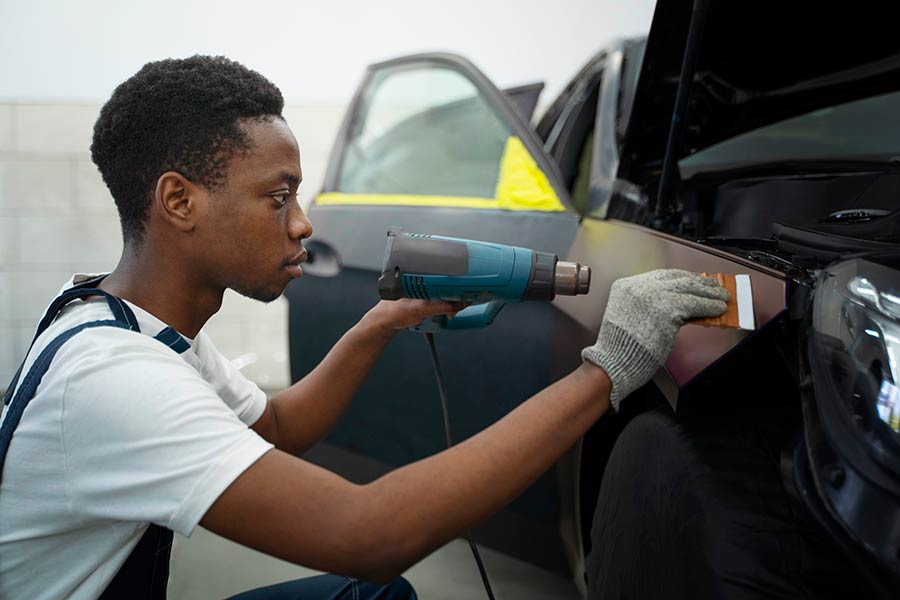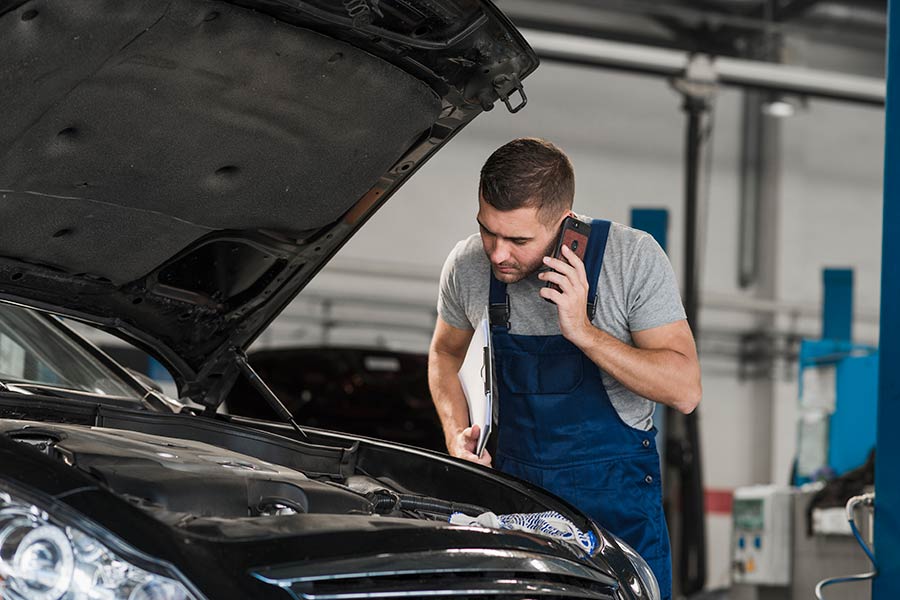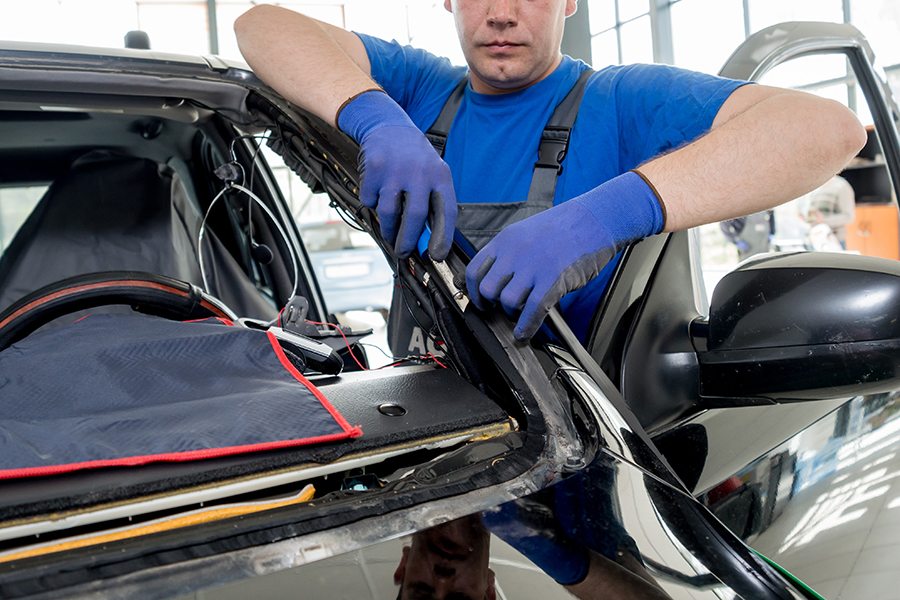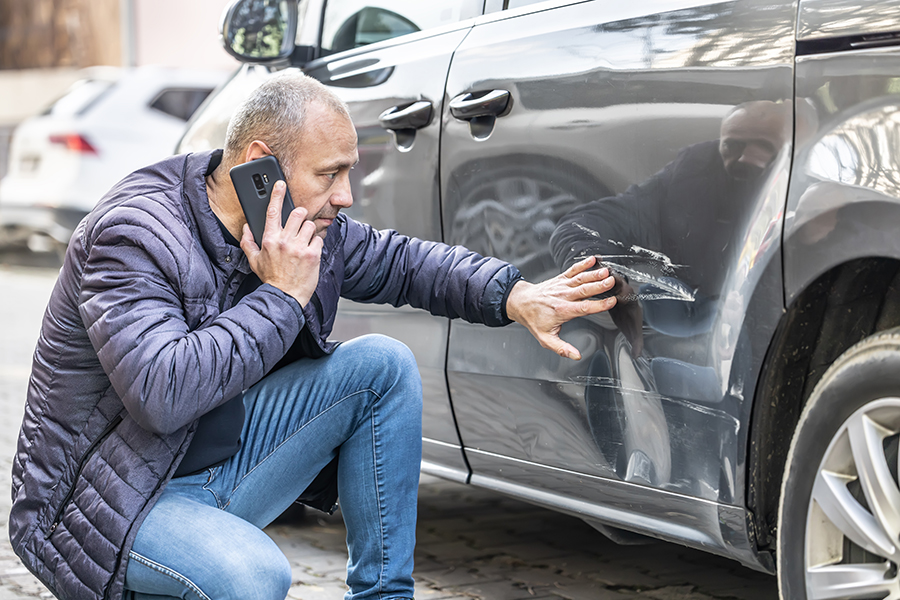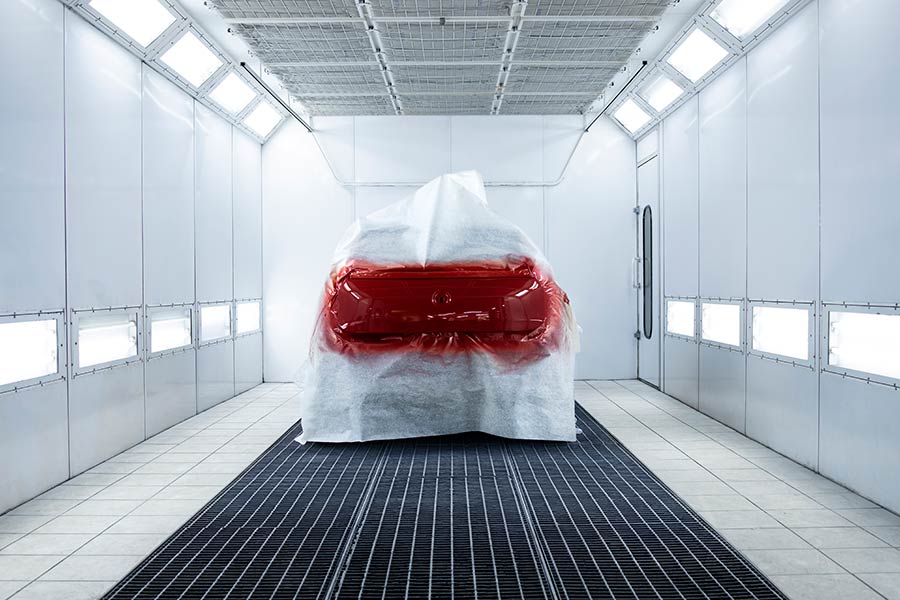Did you know 70% of cars on the road have had some form of bodywork done? When it comes to keeping your ride in top-notch shape, snagging a solid collision repair warranty is like finding gold. But not all that glitters is gold, right? We're diving deep into what makes a warranty worth its weight, and how to spot the ones that leave you high and dry. From understanding the fine print to knowing what real peace of mind looks like, we've got you covered. Let's get into the nitty-gritty of keeping your car's sparkle without losing your shine.
Key Takeaways
-
Always read and understand the terms and conditions of your collision repair warranty to avoid surprises.
-
Choose repair providers with a strong reputation and positive reviews to ensure quality service and reliable warranties.
-
Secure a warranty that covers both parts and labor for the best protection against future repair issues.
-
Know the process for filing a warranty claim and the required documentation to streamline any future claims.
-
If your warranty claim is denied, understand your rights and the steps you can take, including seeking legal advice if necessary.
-
Maintain your warranty by adhering to any required maintenance schedules and keeping detailed records of repairs and services.
Collision Repair Warranty Basics
Coverage Scope
Most collision repair warranties cover paint, body, and mechanical repairs. They typically include both labor and parts. Some warranties offer special coverage for critical components like airbags or the vehicle's electrical system. It's important to ask about these specifics when choosing a repair service.
Duration Details
The length of a warranty period can vary. For most collision repairs, warranties last from one year to a lifetime. The duration might change based on the type of repair or part involved. Sometimes, conditions such as regular maintenance can extend the warranty period.
Auto Shop vs Manufacturer
Warranty Differences
Dealership warranties often differ from third-party repair shop warranties in significant ways. Dealerships might offer broader coverage scope, especially for manufacturer parts. However, third-party shops may provide more flexible terms for aftermarket parts. The choice of repair service directly impacts the warranty terms.
Coverage Limitations
Common issues not covered by collision repair warranties include wear and tear and pre-existing damages. Most warranties have geographic restrictions, limiting coverage to certain states or countries. Understanding these limitations is crucial before finalizing any repair work.
Identifying Reputable Providers
Recognizing Signs
After a collision repair, it's crucial to watch for signs of trouble. Early indicators might include paint bubbling or panels that don't line up right. These issues suggest the repair may not hold up.
It's wise to monitor how your car drives after the repair. If something feels off, it could be a sign of underlying problems. Regular check-ups with a trusted professional can help ensure the repair's integrity remains intact over time.
Verifying Credentials
Choosing a shop with certified technicians is key to quality collision repair. Look for certifications from I-CAR or ASE as these indicate high standards. Also, make sure the shop has proper insurance and backs their work with a warranty accreditation. This gives you peace of mind knowing you're covered if something goes wrong.
Reading Reviews
To find a reputable provider, dig into customer reviews, especially those mentioning warranty claims and satisfaction levels. Reliable review platforms and forums offer unbiased insights. Pay close attention to how businesses handle complaints or warranty issues in their responses. This speaks volumes about their commitment to customer service.
Understanding Terms and Conditions
Coverage Exclusions
Most collision repair warranties do not cover damage from environmental factors. This means things like hail, floods, or sun damage might not be included. If you make changes to your car or get repairs done by someone else without permission, this could void your warranty too.
Neglecting your car or not following the proper maintenance schedule can also lead to exclusions. It's important to take good care of your vehicle to keep the warranty valid.
Claim Process
To start a warranty claim, the first step is contacting the repair shop where the work was done. They need to know what's wrong and see it for themselves. You should bring all documents related to the issue, like receipts or photos.
The process of looking at your claim and fixing your car again usually takes a few weeks. Being patient but keeping in touch with the shop helps.
Transferability Rules
etimes, you can transfer a warranty if you sell your car. This can make your car more attractive to buyers. But there might be paperwork to fill out or a small fee.
Not all warranties allow this, so check first. The ability to transfer a warranty can add value when selling your vehicle.
Securing a Reliable Warranty
Asking Key Questions
Before you agree to any repairs, it's vital to ask about the warranty coverage. Find out what is covered and for how long. It's crucial to understand every detail.
Ask how you would file a claim if needed. Know about any deductibles that might apply. This information helps avoid surprises later on.
You should also inquire about the warranty's duration for different repairs. Some parts may have longer coverage than others. Knowing this can influence your decisions.
Documenting Agreements
It's essential to get all warranty terms in writing. This protects you and ensures clarity on what the warranty covers.
Keep detailed records of all communications and agreements related to the warranty. This documentation can be invaluable if issues arise later.
Organize these documents well. Store them where you can easily find them if needed. This organization will save you time and stress in the future.
Navigating Warranty Claims
Filing Process
After securing a reliable warranty, knowing how to navigate the filing process is crucial. Gather all necessary information before starting. This includes repair receipts and detailed warranty documents.
Timely filing is essential. Waiting too long might lead to a denial due to deadlines. It's important to act quickly.
To submit a claim, contact the warranty provider first. They will guide you on what forms to fill out. Always follow their instructions carefully.
Required Documentation
For a smooth claim process, prepare the right documents. You will need:
-
Repair invoices
-
Photos of the issue
Keeping a log of all maintenance and repairs after the initial service helps too. This shows you've taken care of the vehicle.
Include a detailed account of the problem and any steps taken to fix it. This information can be vital for your claim.
Addressing Denied Claims
Appeal Steps
If your warranty claim gets denied, don't lose hope. First, check the deadline for filing an appeal. Most warranties have a specific timeframe. Next, talk to the repair shop or the warranty provider. They can explain why your claim was denied. This step is crucial for understanding what went wrong.
etimes, the appeal process might seem too complicated. If you find yourself stuck, it might be wise to seek legal advice. A professional can guide you through the appeal, making sure you meet all requirements.
Gathering Evidence
To strengthen your appeal, gather as much evidence as possible. Take clear photos of the fault and get expert opinions on why it happened. These experts can provide valuable insights into the issue's nature.
Document how the problem affects your car's performance or looks. Keep a detailed timeline of events before and after you noticed the issue. This information can be critical in proving your case.
Seeking Legal Advice
When Necessary
etimes, after a collision repair, things don't go as planned. You might notice your car isn't driving the same, or maybe a repair fails soon after. These are signs you may need to file a warranty claim. Safety should always come first. If you feel your vehicle isn't safe to drive due to repair issues, it's crucial to act.
Weighing the cost of potential repairs against what your warranty covers is key. Not all repairs will be worth the hassle of a claim. For smaller issues, it might be cheaper to pay out-of-pocket than to pursue a claim that could take time and effort.
Consulting with a professional can help you make this decision. They can assess the situation and advise whether pursuing a warranty claim is in your best interest.
Finding Representation
If you're hitting walls trying to get your warranty claim addressed, legal representation might be necessary. Look for attorneys who specialize in consumer rights or automotive disputes. They understand the ins and outs of warranty claims and can navigate the complexities.
Consumer protection organizations can also offer guidance. They often have resources or can recommend lawyers experienced in dealing with similar issues.
Remember, when facing denied claims from before, having an expert by your side can make all the difference. They can argue on your behalf and ensure you're treated fairly under the terms of your warranty.
Maintaining Your Warranty
Regular Inspections
Regular inspections are crucial for your vehicle's health. They help catch problems early on. This can save you money and keep your car running smoothly. It's best to have these inspections done at certified repair shops. These shops know your warranty terms well.
Having your vehicle inspected regularly also helps keep your warranty valid. If issues are found, they can be fixed under the warranty, avoiding bigger costs later.
Avoiding Voidance
Certain actions can void your warranty. These include making unauthorized modifications or not following maintenance schedules. It's important to avoid these to keep your warranty intact.
Always follow the guidelines given by the manufacturer and the repair shop. They tell you how to take care of your vehicle properly. Regular maintenance is key. It ensures that everything is working as it should and that your warranty stays valid.
Final Remarks
Navigating the world of collision repair warranties might seem like a maze, but armed with the right info, you're set to make smart choices. You've learned the ropes—from picking a trustworthy provider to understanding the nitty-gritty of terms and conditions, and even how to handle denied claims like a pro. It's all about securing peace of mind knowing your ride's covered, should things go south.
Now, it's your turn to step up. Don't just sit on this goldmine of knowledge. Take action! Review your warranty, or if you're on the hunt for one, use these tips as your compass. Remember, a solid warranty isn't just a safety net—it's your car's best buddy. So, gear up and drive confidently into that horizon, knowing you've got it all under control. Ready to rev up? Let's hit the road with confidence!
Frequently Asked Questions
What exactly is a collision repair warranty?
A collision repair warranty is like a safety net for your car repairs. It guarantees the work done on your vehicle post-collision, covering any necessary fixes if issues arise later due to the original repair work.
How can I spot a trustworthy collision repair provider?
Look for shops with glowing reviews, certifications, and clear communication. It's like finding a diamond in the rough—reputable providers shine with their professionalism and transparency about their warranties.
What are the key terms I should understand in my warranty?
Key terms include coverage length, what's covered (and what's not), and how to file a claim. Think of it as learning the rules of a game before playing—it ensures you know how to win (or in this case, use your warranty effectively).
How do I ensure my warranty is reliable?
Choose shops recommended by trusted sources and check their track record. It’s like picking a teammate for a project—you want someone who’ll pull their weight and has proven they can.
What steps should I take if my warranty claim is denied?
First, review your warranty's terms. If you still believe it was wrongly denied, discuss it with the repair shop. It’s akin to asking for a referee review during a game when you think they missed a foul.
Can I seek legal advice if my claim is denied?
Yes, if talking doesn't help and you're sure you're in the right, seeking legal advice is like calling in the big guns. Lawyers can help navigate the complex terrain of consumer rights.
How can I maintain my collision repair warranty?
Follow all maintenance recommendations and keep records of all repairs and services. Think of it as keeping receipts for an important purchase; these documents prove care and can be crucial for claims.

